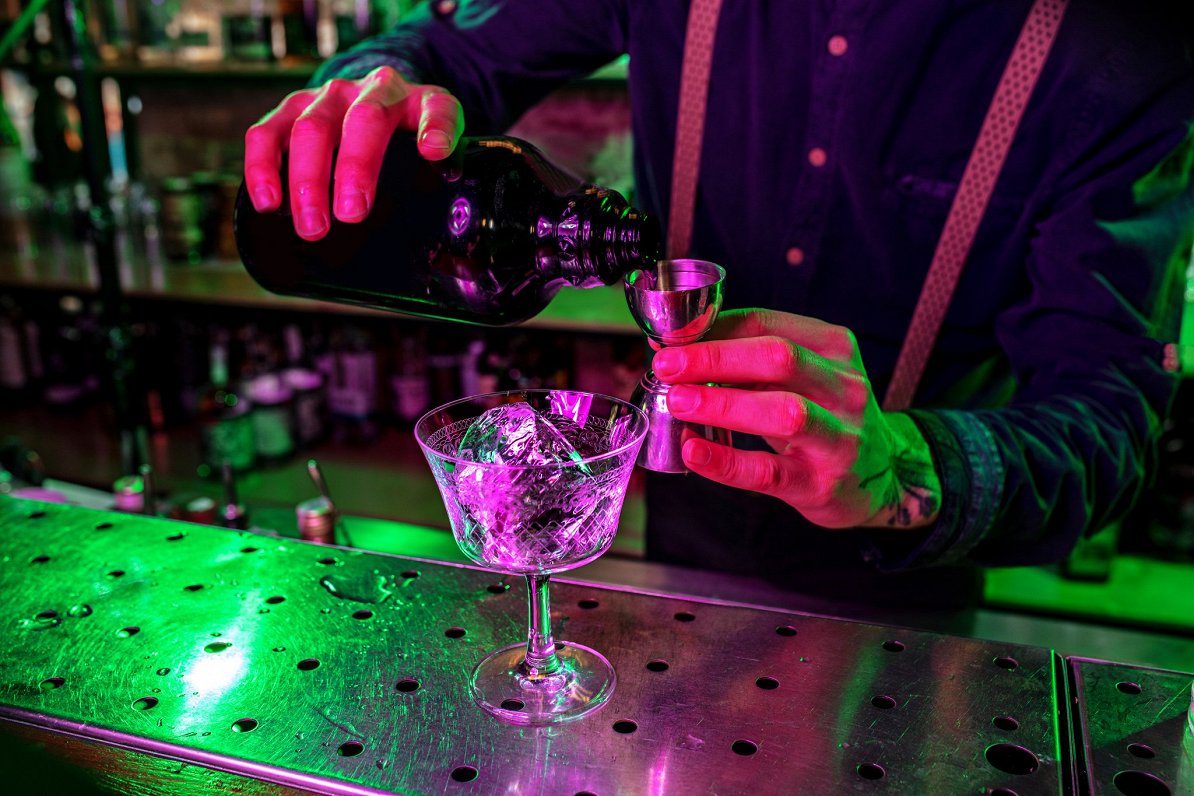According to the OECD data, in 2019, one inhabitant of Latvia drank 12.9 liters of alcoholic drinks (measured by sales). The next country with the highest alcohol consumption is the Czech Republic. Lithuanians are in sixth place, Estonians fourteenth. In addition, Latvia is one of the few countries where alcohol consumption has increased since 2009.
Registered absolute alcohol consumption in liters per capita aged 15 and over 2009-2019
Recent Eurostat figures suggest that 2.7% of Latvians get drunk once a week, 11.5% once a month and 16.4% less often than that, while 69.4% said they had not over-indulged at all during the previous 12 months. The drinking figures for men are significantly higher than those for women.
Plans do exist to tackle Latvia's alcohol dependency issues, but as Latvian Radio has been reporting throughout this week, they appear to be making limited headway. Key among these is the Health Ministry's "Action Plan for Reducing Alcohol Consumption and Alcoholism 2020-2022". The 53-page document contains a total of 36 different objectives with four lines of action.
Reducing the availability of alcoholic beverages
Official of the Health Ministry Sanita Lazdiņa pointed out: “A large part of the measures included in the first course of action have already begun. As far as labeling, gambling halls and advertising are concerned, we have already embarked on this process of improving legislation. The goal of the Ministry of Health would be to nominate and approve this bill in the Cabinet of Ministers by the end of this year, so that it will be considered by the Saeima further. ”
So some of the things in the plan are moving forward, but not all. For example, the Ministry of Transport was supposed to set up a behavioral correction program for drink-drivers. The implementation of this idea is already delayed, and it could be incorporated into the law at the beginning of next year at the earliest. The ministry also had to consider reducing the current drink-drive alcohol limit
Annija Novikova, Director of the Public Transport Services Department of the Ministry of Transport told Latvian Radio: “Experience from both controlling institutions and foreign research suggests that the reduction is more of a motivating element, but that there is no statistical improvement. So we ideologically understand that it is worth returning to this issue from time to time. And since we have this task, we will look at this issue again at an appropriate time in the road safety think tank. ”
Marketing restrictions and pricing policy
The plan to reduce alcoholism also has a second line of action: restricting the marketing of alcoholic beverages and pricing policies. It talks about advertising restrictions, and price promotions that should not be allowed, for example - if you buy one bottle, then you get another at a discount. It is also planned to ban the sale of strong alcohol in small PET packaging. These changes in the law have actually made headway. However, it is already known that another point of the plan will not be fulfilled, which would allow 0.5% of the excise tax collected to go to the "State Health Promotion Fund". It was planned that the money from this fund would be used for public health promotion projects. But the plans have changed a bit.
Representative of the Ministry of Health Lazdiņa said: “We understood that currently it would be difficult to create such a separate fund. We are considering another option, which is to allow this excise duty to be diverted from alcohol, tobacco and gambling to the budget of the Ministry of Health, not to the Health Fund. And then we can judge where to direct it to. ”
Investigate and monitor alcohol consumption and its consequences
There is also a third direction in the plan, which is to study and monitor how much we drink, what the consequences are and what solutions to offer. There is some activity here.
"As regards the procedure for calculating registered alcohol consumption, the Center for Disease Prevention and Control has carried out a calculation. Two studies have also been launched – one on use, the consequences and benefits of prevention, and the other on the use of addictive substances during pregnancy,” said Lazdiņa.
Already, the research shows that the amount of alcohol consumed by the Latvian population is growing, not reducing.
Alcoholism treatment
Finally, the fourth direction of the plan for the treatment of alcoholism marks the saddest picture. The Health Ministry does not hope that even a small part of the twelve points included in this direction will be met. Doctors are also outraged by this, admitted Astrida Stirna, the head of the drug treatment service of the Narcology Center.
"No additional funds have been found for years to implement these programs. I will give an example – we have outpatient psychotherapy programs, as well as help for adolescents, we have envisaged that these patients should be exempted from co-payments, the same applies to medication. I would very much like it if thought about other illnesses in this country, not just Covid,” Stirna noted.
But there are also several points in the plan that are moving forward. For example, the regulation on the provision of sobering-up shelters. According to the Ministry of Environmental Protection and Regional Development (MEPRD), some 6.4 million euros for the development of such shelters has been secured thanks to the availability of European funds.
However, as Latvian Radio concludes, the short-term treatment of chronic alcoholism, and even more the creation of well-intentioned plans without financial backing, are unlikely to significantly change Latvian society's self-destructive drinking habit and its consequences.





























